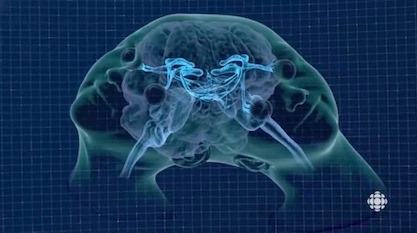Tatiana and Krista Hogan's shared and individual powers of mind are just what Thomistic dualism predicts.

evolutionnews.org
However, rational powers of the soul — abstract thought — are immaterial powers. They are not caused by matter, although material processes, such as wakefulness, normal physiology, vision, imagination, etc., are necessary for normal expression of immaterial abstract thought. In the Thomistic understanding, material powers “present” information to the immaterial rational aspect of the soul, which abstracts the intelligible species (immaterial form) from the matter and comprehends it.
In light of this Thomistic understanding of the soul, the abilities that Tatiana and Krista share are the material powers of the brain, which we expect them to share, because they share brain matter. What they don’t appear to share is the immaterial aspect of the soul — reasoning in an abstract sense, and personal identity, individuality, etc. They are separate souls who share some material brain tissue, and thus share some material powers of the mind. They do not share immaterial powers of the mind, because immaterial powers can’t be shared, because immaterial powers aren’t material things that can be common to two people.
...
A similar phenomenon was noted by Wilder Penfield, who was the pioneering neurosurgeon who started the discipline of epilepsy surgery. He noted that while operating on conscious patients he could stimulate many sensory and motor aspects of brain function, but he couldn’t stimulate or ablate that patient’s sense of self or experience of unitary existence. There was, Penfield noted, as aspect of the mind that he couldn’t reach, that remained beyond his surgical instruments. This has certainly been my experience as a neurosurgeon as well.


